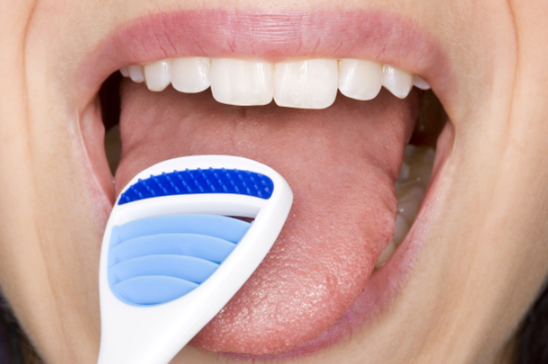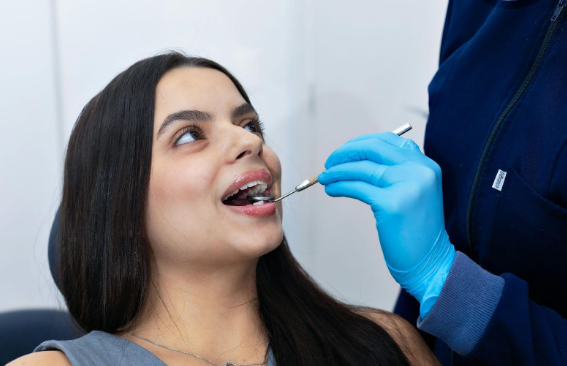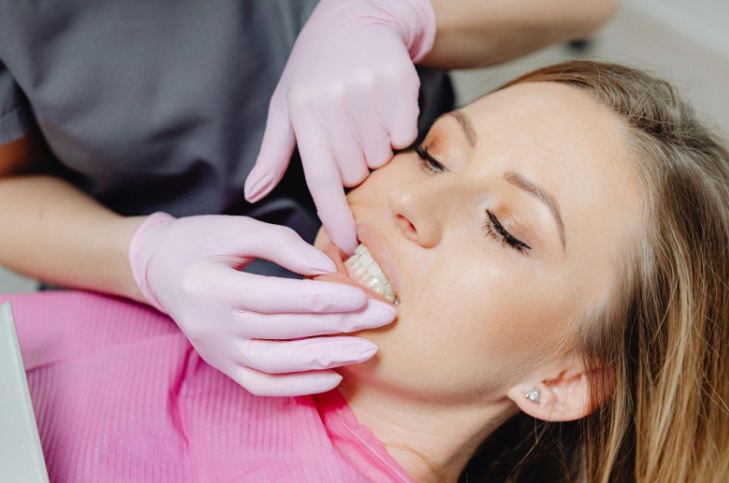What Is So Special About Your Amazing Tongue?
What Is So Special About Your Amazing Tongue?

Our tongue is one of those things that we take for granted. However, it’s an amazing and remarkable muscular organ that could be considered one of the most important parts of the body. It helps you not only to chew, taste, and enjoy food but also assists with digestion and speech. You can even pull off the toughest tongue twister with it.
There is no doubt that the tongue is a true all-rounder. In fact, it has one more function: it keeps our teeth clean. Read on to explore the fascinating world of your tongue, including its basic anatomy, incredible functions, and how to maintain its health and hygiene. Get ready to say, “aaaah.”
What Is the Tongue Made of?
The tongue is an extremely movable set of muscles filled with blood and nerves working together. Its upper surface is covered with small, finger-like projections called papillae, among which we can find up to 10,000 taste buds. You have three different types of papillae that contain taste buds:
- Fungiform: They are scattered across the tongue’s surface.
- Circumvallate: They are inverted V-shaped, contain more taste buds, and are more complex.
- Foliate: They cover most of the side of the tongue.
The taste buds are clusters of nerve cells that transmit sensory messages to your brain. These taste buds are the reason why you can savor every bit of your favorite meal.
How Does Your Tongue Work?
The multitasking tongue has incredible functions in many daily activities. Let’s break down the most important ones:
Taste Perception
As mentioned before, the tongue hosts thousands of taste buds that sense different flavors, such as sweet, salty, bitter, sour, umami, or savory.
Speech and Articulation
The tongue is a critical component in our ability to form words, sounds, and articulate speech. Various parts of the tongue work together with other elements inside our mouths, such as the teeth and the palate, to produce different sounds and convey our thoughts and emotions through spoken language.
Assisting in Digestion
The tongue not only allows you to taste food, but it also helps break down food substances into smaller particles, making it easier for the body to process and absorb nutrients. It moves food around your mouth to ease chewing and swallowing food down to the esophagus.
The Tongue and Breathing
Your tongue aids your respiratory system by helping to keep your airway open, ensuring you can breathe properly. Its strategic positioning within your mouth prevents the airway from becoming blocked, especially while you sleep.
Oral Hygiene
Last but certainly not least, the tongue maintains oral hygiene as well. It essentially cleans up your mouth by removing food particles stuck in the teeth while it moves around.
Why Is Tongue Cleaning Important?
Your tongue is also home to billions of bacteria, some of which can contribute to oral issues such as tooth decay, gum disease, and bad breath. To prevent these problems and maintain good oral health, you need to take care of it. Here are some ways to maintain proper tongue hygiene:
Brush Your Tongue
Every time you brush your teeth, don't forget to clean your tongue too. It helps remove the harmful bacteria that contribute to bad breath and plaque buildup.
Use a Tongue Scraper
The bacteria behind your tongue will continue to flourish if you only brush your teeth. For this reason, many modern toothbrushes include a tongue scraper built into the bristles on opposite sides of the head. A tongue scraper can help clean your tongue thoroughly. It’s typically more effective at removing bacteria and food debris than brushing alone.
Stay Hydrated
Drinking plenty of water contributes to overall tongue health by ensuring that your mouth stays moist and clean.
Keep a Balanced Diet
Eating a balanced diet is beneficial to your tongue's health. Some vitamins and minerals, like B vitamins, iron, and zinc, are particularly known for maintaining a healthy and strong tongue.
Schedule Regular Dental Check-Ups
Regular visits to the dentist aren't only for your teeth! Dentists can also check the health of your tongue during routine examinations and cleanings.
What Are the Common Tongue-Related Issues?
Your tongue might experience various issues due to different causes. Here are some:
Difficulty Moving Your Tongue
This oral condition, also known as tongue-tie, can affect the way you speak and eat. A surgical procedure called a frenectomy can treat this condition.
Numb Tongue
Some of the causes of a numb or tingling tongue include allergic reactions, autoimmune disorders, nerve damage, vitamin deficiencies, or even a stroke. For those reasons, you should seek immediate medical help if you experience this symptom.
Tongue Bumps
Smoking or ill-fitting dentures may cause this discomfort. However, a sore and bumpy tongue can also be a symptom of oral cancer, although this type of disease doesn't always cause pain.
Discolored Tongue
If your tongue changes color, it could be a sign of an underlying health condition. White patches could indicate oral thrush, while a red or purple tongue might be due to vitamin deficiencies or scarlet fever. A yellow tongue may come from bacterial overgrowth, while a black one might come from a harmless but oddly named condition, "black hairy tongue."
What Are Some Interesting Facts about the Tongue?
After learning how important your tongue is and how to maintain proper oral health, let’s take a quick glance at some facts you might find interesting about this understudied organ:
- Like our fingerprints, each person's tongue print is unique.
- The tongue may act as a first-line immune organ, as it’s the gateway to the gastrointestinal system.
- It may not be the strongest muscle in the body, but it may be one of the most flexible.
If you're looking for exceptional dental care, oral hygiene, and cleaning in a comfortable and welcoming environment, you can visit
Patriot Family Dental. Our team of experienced dentists and hygienists provides top-notch dental services to all our patients. Call us at
(123) 456-7890 to schedule an appointment today!











